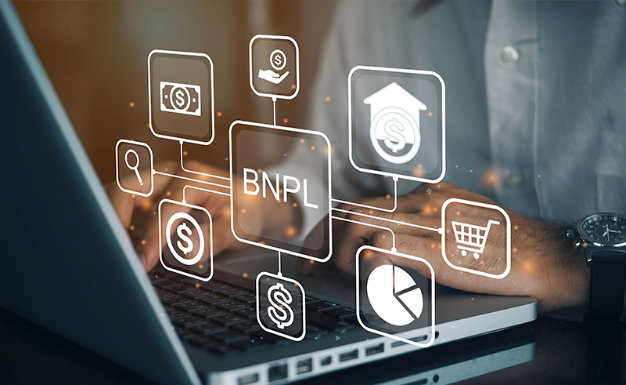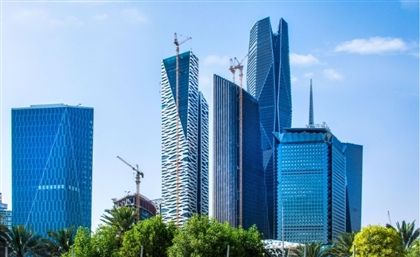What’s Driving BNPL Growth in the MENA Region?
With the BNPL market in MENA expected to rise to $89bn by 2030, we speak with fintech experts on the future of the industry.

Buy now pay later (BNPL) is booming in the Middle East. Startups offering online short-term loan options have been growing exponentially in the region, particularly with the rise of e-commerce penetration during the COVID-19 pandemic in 2020. According to Precedence Research, the BNPL market in the Middle East is expected to rise from $7.2 billion in 2021 to $89 billion by 2030. And investors are taking notice.
In January 2023, UAE’s BNPL startup Tabby raised $58 million in a Series C round, and in May, it increased its debt facility to $350 million. Meanwhile, Egypt’s fintech startup, MNT-Halan, which launched its BNPL arm last year, raised $400 million in February, in what is considered to be one of the largest funding rounds in the MENA region this year.
The popularity of BNPL is largely driven by the fact that it is presented as an alternative to cash. With only 8% of the population in the region having credit cards according to Insider Intelligence, many still prefer to use cash to make payments. Spotti, a UAE BNPL startup that recently transitioned to a white label technology company, believes that the reason for the quick take-up of BNPL is because there is no interest charged to consumers.
“Culturally BNPL appeals to the consumer base here as there is no interest and it can be very easily positioned as Shariah compliant,” Ziyaad Ahmed, Co-Founder of Spotii, tells StartupScene. “In other markets, you may have prolific uses of credit cards, but you don’t necessarily have that here, because culturally people don’t want to use these types of products.”
With high inflation and increase in the cost of living, people are also opting to use BNPL to make ends meet and maintain their standard of living. For Sympl, an Egyptian BNPL startup that was launched in 2021, it has already onboarded 35,000 customers and is seeing continuous uptake in online sales.
“Online used to represent 5% of my business, today it represents 40%,” says Mohamed El-Feky, Founder of Sympl. “People shopping online used to pay cash on delivery, but given that this feature is now available and prices are getting more expensive, more people are starting to use it.”
ECONOMIC TURBULENCE
While this new form of credit may be skyrocketing in the region, it is not immune to macroeconomic challenges. Geopolitical tensions, inflation, economic uncertainty, and rate hikes have impacted investor appetite in BNPL, as well as other sectors. “The Federal Reserve increased rates seven to eight times in the last two years, giving global investors and VC funds an alternative to putting their money in startups,” adds El-Feky. “They can put their money in treasury bills or in other safe options that will give them high returns on their investments without taking any risk, given the uncertainty in the market right now.”
This slowdown in capital coupled with less consumer spending, amongst other factors, have resulted in devaluations of some global BNPL companies. Sweden’s Klarna, for instance, saw its valuation slashed to $6.7 billion from $46 billion in 2022. US-based Affirm also witnessed its shares plunge by almost 50% as of May 2023, while Australia’s Zip is now preparing to exit international markets after experiencing a 95% share drop.
Although the global slump does not appear to be reaching MENA for the time being, its impact can still be felt in the region. With Zip’s exit from international markets, it pulled out from UAE’s Spotii, which it acquired in October 2021. As a result, Spotii began winding down its operations in the UAE before being acquired by NymCard, a payment infrastructure firm, in June 2023.
BNPL 2.0
Despite these setbacks, however, BNPL remains a promising sector in the region.
Cashew Payments, a BNPL startup in the UAE, is expanding to other markets in the GCC given the quick uptake of this alternative payment solution. “The BNPL space is still growing at a fast speed,” says Ibtissam Ouassif, Co-Founder of Cashew Payments. “That’s why we’re expanding to other countries like Oman and Saudi Arabia, but even here in the UAE we’re seeing increased uptake.”
Instead of focusing only on small ticket sized purchases, like most BNPL providers, Cashew Payments is partnering with financial institutions such as Mashreq Bank to provide higher ticket sized loans. These types of loans aim to cover school fees, health care services including dental care, fertility and cosmetic treatments amongst other services.
But the catch is that consumers will have to pay fees for such loans. Walid Hassouna, Founder and CEO of vaLU, an Egyptian company offering BNPL and other long term financing solutions, refers to this type of lending as the “2.0 version of BNPL.”
“Most of the BNPLs that we see in the region are trying to transform into the model that we have built over the past five years,” he says. “The 2.0 version gives customers longer tenures for financing, but with interest. There is no way we’re not going to charge interest for up to 60 months of financing.”
ONCOMING REGULATIONS
As BNPL becomes increasingly popular in the region, it is also starting to come under increased scrutiny, particularly with issues concerning credit risk and non-payment consequences.
To date, BNPL is not regulated in the region, except for Saudi Arabia. But according to Ouassif, the UAE plans to soon introduce regulations, which will encourage other countries across the region to follow suit.
For Ouassif, regulations are a welcome step for the BNPL sector. “It first protects users, because they’re not going to be given more than they can actually borrow, which is very important,” Ouassif says. “It also protects us as companies, because now there will be consequences for consumers that miss their payments, or don’t want to pay their outstanding dues.”
In Egypt, regulations will also enable startups like Sympl to have greater access to funding, particularly from financial institutions, as well as be eligible for tax breaks. “If I’m regulated under the Financial Regulatory Authority (FRA) or the central bank as a financial service company, I get tax exemption,” says El Fekry. “Once that happens, I’m reimbursed 14% of the money I used to pay in VAT, and it now enters my profit margin.”
Regulation seems to be a key focus for BNPL growth in the region. But perhaps the biggest predictor of BNPL growth is simply surviving the economy. In order for people to continue buying goods and services, they must not fall into debt and withdraw from the market. If they’re able to do so, then, as Fekry says, “The sky is limit.”






















